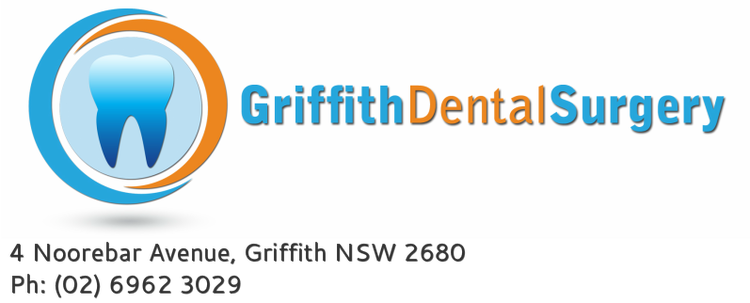DENTAL HEALTH IN ADULTS

All adults can maintain good dental health throughout adulthood by adopting good oral hygiene practices and by having a healthy diet.
Common oral health conditions in adults can include tooth decay (dental caries), gum disease, tooth wear, dry mouth and tooth sensitivity. Decay in adults can be common around fillings and between teeth.
Adults
What is the best way to look after your dental health?
Proper oral hygiene is important for a bright, healthy smile which lasts a lifetime and enhances your overall health. This includes:
Seniors Care
Good dental care can help retain teeth for a lifetime. Seniors have special dental needs and greatly benefit from regular dental care. The ageing process puts seniors at risk for certain dental problems:
Gum Disease
Gum diseases are caused by dental plaque and tartar, and older individuals are more susceptible. Health issues such as diabetes, blood pressure medications, osteoporosis can increase the risk for gum disease. Chronic gum infection can in fact deteriorate general health by contributing to poorer diabetes control, heart disease, stroke and even respiratory conditions. Gum diseases can be easily controlled by regular periodontal therapy and good oral hygiene.
Root Decay
Reduced saliva secretion, gum recessions exposing the root and tooth wear that occur with age are common causes for decay tooth roots. Root cavities can erode the tooth’s support and cause breakage. Regular dental visits can help spot these problems early and restore teeth to prevent further damage.
Ill Fitting Dentures
With tooth loss being common with age, more seniors rely on full or partial dentures. As the supporting tissue underlying dentures tends to flatten and change shape, dentures often become loose or unstable with time. Sore spots under such dentures can be another issue. Replacing old dentures every few years is necessary; besides regular check ups to determine any problems. Dental implants may be sometimes advised to improve the support for dentures.
Dry Mouth
Medications, health issues like diabetes, or undetected medical problems can cause decrease in saliva production leading to a dry mouth. This can cause problems like increased dental decay and sores. Excessive dry mouth can be managed by saliva substitutes and simple practices like sipping water frequently.
Sores, Red or White Spots
Oral sores, red or white spots that are persistent can signal a medical problem and need attention. At times such lesions can need examination to rule out oral cancer.
Some Tips
• Getting regular dental check-ups
• Maintaining good hygiene practices; regular brushing and flossing.
• Your dentist can suggest aids like electric toothbrushes and oral rinses that make oral hygiene easier
• Eating a healthy well balanced diet
• Taking good care of dentures, soaking them overnight, brushing and cleaning regularly and replacing early if ill fitting or broken.
Common oral health conditions in adults can include tooth decay (dental caries), gum disease, tooth wear, dry mouth and tooth sensitivity. Decay in adults can be common around fillings and between teeth.
Adults
What is the best way to look after your dental health?
Proper oral hygiene is important for a bright, healthy smile which lasts a lifetime and enhances your overall health. This includes:
- maintaining a healthy diet including drinking of plenty of water and eating minimal sugary, sticky or starchy foods.
- brushing twice a day with toothpaste to remove plaque - the sticky film on your teeth which causes tooth decay.
- flossing daily to remove plaque from between your teeth and under your gumline, before it hardens into calculus. Once calculus has formed, it can only be removed by a dentist with professional cleaning.
- visiting the dentist regularly for professional cleaning and comprehensive examination. Read more about preventative care at Griffith Dental & Medical Surgery.
Seniors Care
Good dental care can help retain teeth for a lifetime. Seniors have special dental needs and greatly benefit from regular dental care. The ageing process puts seniors at risk for certain dental problems:
Gum Disease
Gum diseases are caused by dental plaque and tartar, and older individuals are more susceptible. Health issues such as diabetes, blood pressure medications, osteoporosis can increase the risk for gum disease. Chronic gum infection can in fact deteriorate general health by contributing to poorer diabetes control, heart disease, stroke and even respiratory conditions. Gum diseases can be easily controlled by regular periodontal therapy and good oral hygiene.
Root Decay
Reduced saliva secretion, gum recessions exposing the root and tooth wear that occur with age are common causes for decay tooth roots. Root cavities can erode the tooth’s support and cause breakage. Regular dental visits can help spot these problems early and restore teeth to prevent further damage.
Ill Fitting Dentures
With tooth loss being common with age, more seniors rely on full or partial dentures. As the supporting tissue underlying dentures tends to flatten and change shape, dentures often become loose or unstable with time. Sore spots under such dentures can be another issue. Replacing old dentures every few years is necessary; besides regular check ups to determine any problems. Dental implants may be sometimes advised to improve the support for dentures.
Dry Mouth
Medications, health issues like diabetes, or undetected medical problems can cause decrease in saliva production leading to a dry mouth. This can cause problems like increased dental decay and sores. Excessive dry mouth can be managed by saliva substitutes and simple practices like sipping water frequently.
Sores, Red or White Spots
Oral sores, red or white spots that are persistent can signal a medical problem and need attention. At times such lesions can need examination to rule out oral cancer.
Some Tips
• Getting regular dental check-ups
• Maintaining good hygiene practices; regular brushing and flossing.
• Your dentist can suggest aids like electric toothbrushes and oral rinses that make oral hygiene easier
• Eating a healthy well balanced diet
• Taking good care of dentures, soaking them overnight, brushing and cleaning regularly and replacing early if ill fitting or broken.

